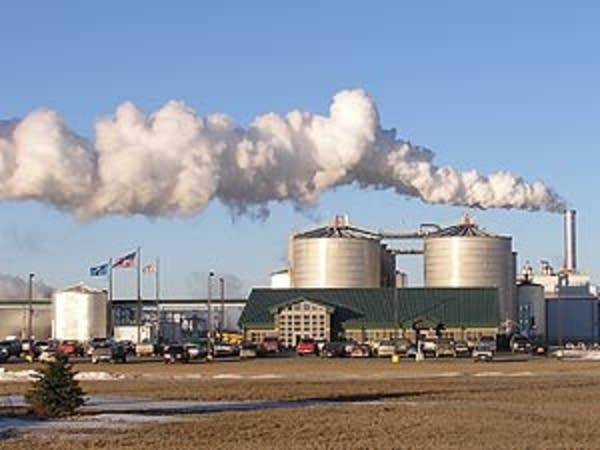Ethanol producers come under fire in Congress

The ethanol's industry heavy use of corn is a major reason why corn prices have risen sharply, to nearly $6 a bushel. Those higher prices are one factor in boosting food costs, up nearly five percent in the last year.
Last December Congress mandated that the U.S. produce 15 billion gallons of ethanol by 2015, roughly double current production. At a House Energy and Air Quality Subcommittee hearing, big oil blasted the nation's ethanol policies.
Charles Drevna, National Petrochemical and Refiners Association President, said a major portion of the the ethanol mandate has landed on the dinner tables of ordinary Americans.
"Not even five months after the enactment of the new biofuels mandate, the chickens are coming home to roost. And we literally can't afford to feed them," said Drevna. "The price of corn, the source of 97 percent of ethanol in the United States, and also the main ingredient in chicken feed, has tripled over the past two years."
Create a More Connected Minnesota
MPR News is your trusted resource for the news you need. With your support, MPR News brings accessible, courageous journalism and authentic conversation to everyone - free of paywalls and barriers. Your gift makes a difference.

Drevna said a Purdue University study showed roughly two-thirds of food price inflation in 2007, some 15 billion dollars, was caused by biofuels production. Drevna said the petroleum industry doesn't oppose ethanol, but said the marketplace, not government mandates and subsidies, should decide how much is produced.
On the other side of the issue, an ethanol supporter disputed the ethanol-food price link. Bob Dinneen of the Renewable Fuels Association said most of the increase in food costs is because of high oil prices, which are driving up the cost of inputs like fuel and fertilizer.
"You can't produce $2.50 corn with $4.50 diesel fuel," said Dinneen. "Energy prices are driving agriculture commodity markets today, they're driving food markets today."
Dineen said other factors also contribute to food price inflation. He said poor weather in parts of the world have cut grain production. Growing economies in some countries have boosted demand for food, especially in China.
All the debate over ethanol has lead to some legislative proposals. On Monday 26 senators, including the Republican's apparent presidential candidate John McCain, asked that federal mandates for ethanol production be cut in half. At the House subcommittee hearing, Texas Rep. Joe Barton said he'll introduce a bill to repeal last December's renewable fuels mandate. He said that would reduce the demand for corn and help relieve some of the pressure on rising food prices.
"If we do nothing we're going to have the chaos that we have right now," said Barton. "And it'll just be political finger-pointing."
Bob Dinneen of the Renewable Fuels Association said reducing ethanol production is a bad idea; he said it would cost consumers money. He said ethanol helps keep down the price of gasoline and removing ethanol from gas blends would increase prices at the pump by as much as a third.
Those types of arguments have given ethanol supporters the upper hand in the debate. Key Democrats in control of Congress and the committee process so far have turned down any suggestion that ethanol mandates should be roll backed.
